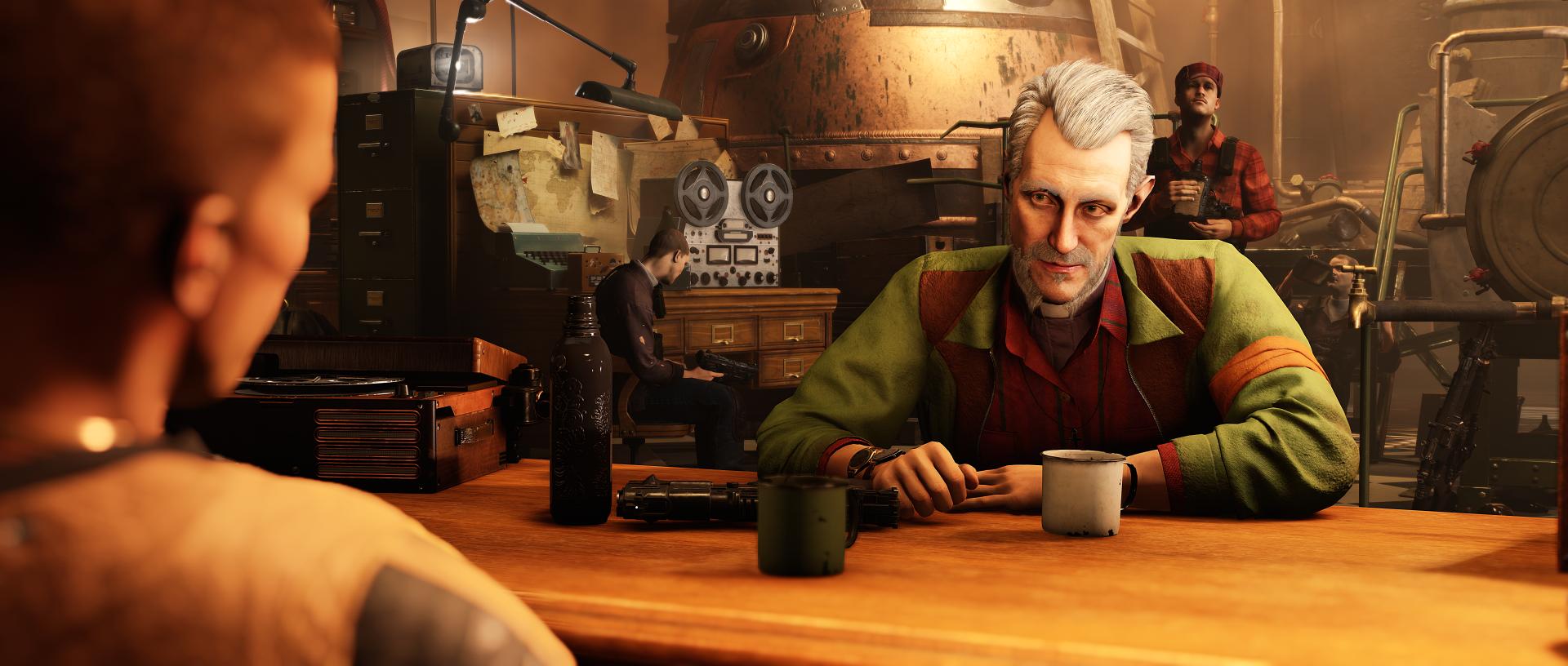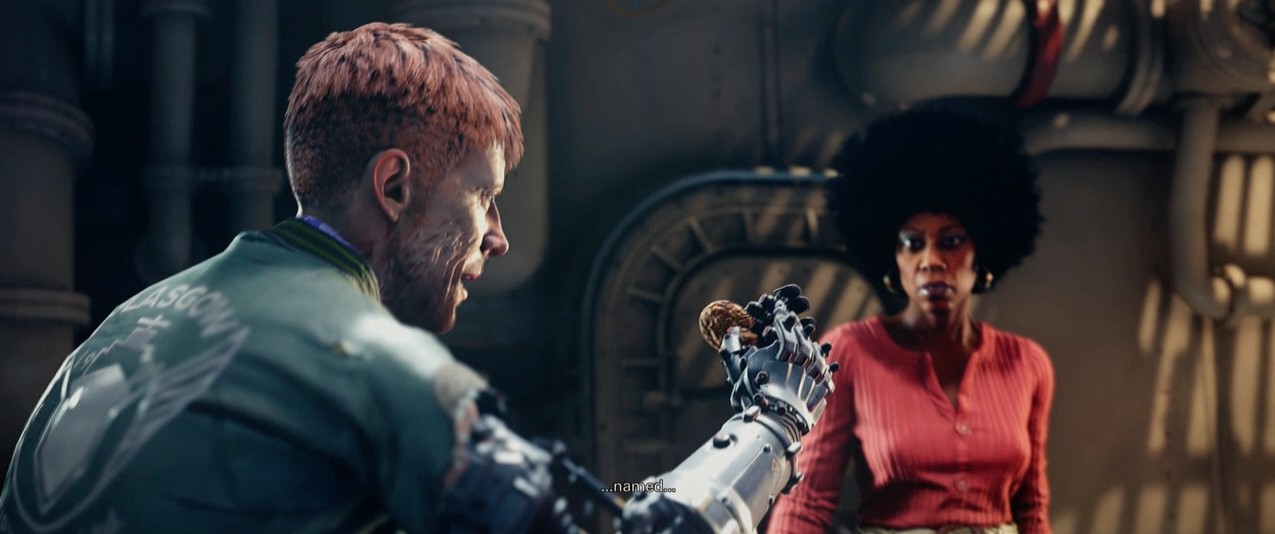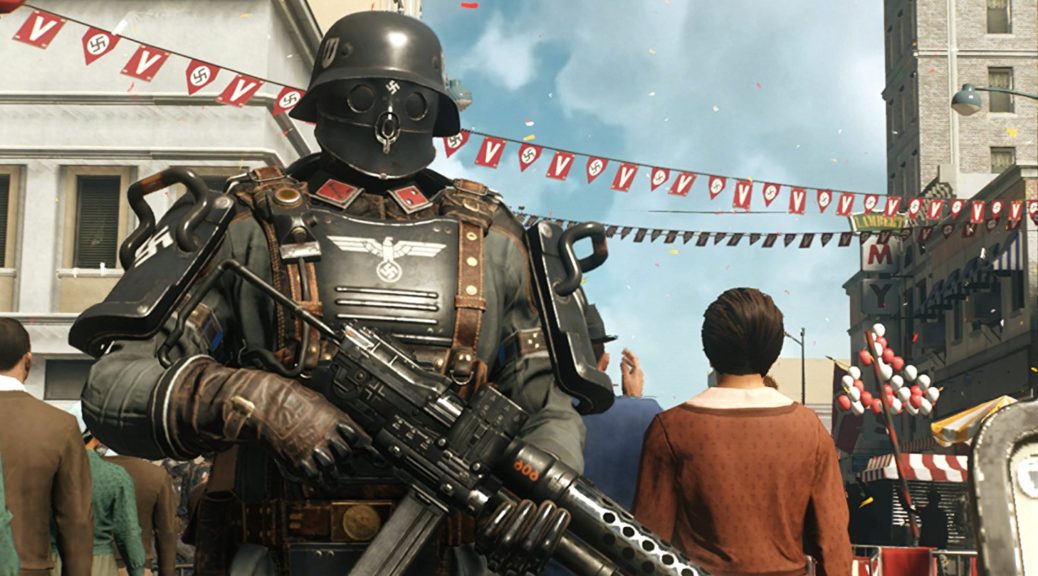- The rebooted Wolfenstein games shift from just killing Nazis to exploring a deeper battle between good and evil when confronted with extreme oppression.
- Set in an alternate history where the Nazis won World War II, the series depicts a world under the oppressive thumb of their cruel and technologically advanced regime.
- Difficult choices have lasting consequences throughout the games.
Video games set in the World War II era often grapple with the challenge of capturing the true horrors of Nazism. The Wolfenstein games have always been about battling evil in a satisfying, action-packed way.
But there’s been a change since the reboot series began with The New Order. It’s not just about shooting over-the-top Nazis anymore; it’s about a dark, morally complicated fight that makes you think hard about what it means to be “good” in the face of overwhelming oppression.
In the Wolfenstein world, the Nazis are clearly the villains. Their messed-up beliefs in racial purity and wanting to rule the world are terrifying. Everything they do, from their cruel experiments to their ruthless leaders, is just plain evil.
However, in fighting this supreme evil, the heroes of the Wolfenstein series often find themselves pulled into a moral gray area. On another note, Wolfenstein 3 is potentially in development, as hinted in job listings.
I can’t wait to see what MachineGames has in store for us, especially after The Young Blood was met with mixed reviews.
Why it matters: The Wolfenstein franchise teaches us that sometimes, the fight isn’t just happening on the violent streets and battlefields but within the troubled hearts of those standing up for what they think is right.

When Winning Means Losing
B.J. Blazkowicz, our battle-scarred protagonist, isn’t your standard-issue action hero. His world is one of unspeakable atrocities; the Nazis won the war and built a global empire on genocide.
The Wolfenstein games pull no punches, showing the horrific consequences. In this nightmare setting, “winning” comes with bloody costs that challenge traditional ideas of heroism.
In Wolfenstein: The New Order, Blazkowicz faces a tough decision: save himself by sacrificing either Fergus or Wyatt. It’s like a real gut-wrencher, reminiscent of “Sophie’s Choice,” showing that even in a war against total evil, you can’t avoid losing some of your own humanity.
This decision sticks around, affecting what happens next, depending on who you save.

Desperate Measures, Desperate Choices
Furthermore, in The New Order, Blazkowicz isn’t just fighting Nazis; he’s fighting for his own soul. The Resistance, battered and desperate, makes morally dubious choices.
Do you sacrifice a few to save many? Can torture ever be justified? Unlike many shooter games, Wolfenstein makes you grapple with the grim results of your actions. The only game that comes to mind while playing Wolfenstein is Spec Ops: The Line, which also questions the player’s moral actions.
In Wolfenstein: The New Colossus, things get intense. B.J. is beat up and joins a ragtag group fighting the Nazis in America. But this resistance has changed. Sometimes, they’re so focused on beating the Nazis that they start acting like them.
They’re not afraid to use torture, executions, or shady experiments. They’re so desperate to win that they risk becoming just like the monsters they’re fighting. Sometimes, the “good guys” act monstrously out of the sheer need to survive.
This isn’t some gritty realism for the sake of being edgy. It reflects a brutal truth about war: it scars and changes people.

No Easy Answers in Wolfenstein
What makes Wolfenstein stand out is its refusal to offer simple solutions. It’s not just glorifying violence; it makes you face some tough questions about your limits.
It’s easy to see the Nazis as pure evil and feel justified in your actions. But Wolfenstein throws moments at you that make you think twice. When the line between fighting for freedom and resorting to terror blurs, and when you respond to cruelty with more cruelty, true horror is revealed.
Playing Wolfenstein left me feeling uneasy at times. Sure, it’s satisfying to take down the Nazis, but it also makes me wonder about the cost of that satisfaction.
There’s this lingering feeling that even heroes can lose their way when darkness surrounds them. What’s really clever about the series is that it doesn’t let Blazkowicz or the Resistance off the hook for the awful things they do. There are no easy excuses here.
Some might call it cynical, but I think it’s brutally honest. Real wars aren’t clean, and the winners aren’t always the good guys. Wolfenstein makes us face the uncomfortable truth that fighting monsters can sometimes turn you into one.
Thank you! Please share your positive feedback. 🔋
How could we improve this post? Please Help us. 😔
Passionate gamer and content creator with vast knowledge of video games, and I enjoy writing content about them. My creativity and ability to think outside the box allow me to approach gaming uniquely. With my dedication to gaming and content creation, I’m constantly exploring new ways to share my passion with others.


 Threads
Threads

